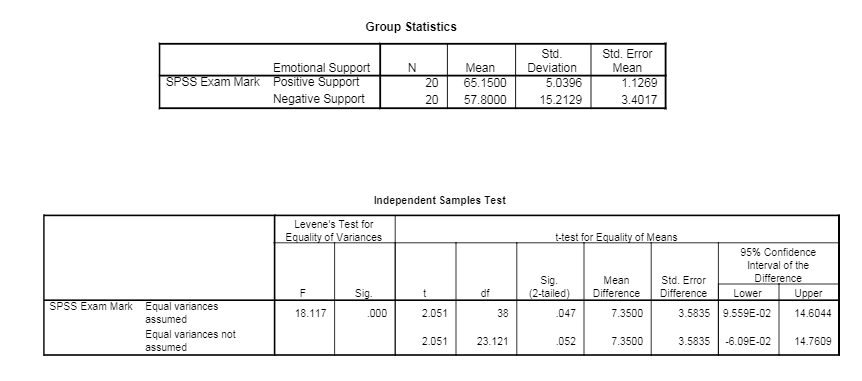Multiple Choice
A researcher was interested in the effects of emotion-evoking music on exam performance. Before their SPSS exam, a lecturer took one group of students to a room in which calming music was being played. A different group of students were taken to another room in which the 'death march' was being played. The students then did the exam and their marks were noted. The SPSS output is below. The experimenter made no predictions about which form of support would produce the best exam performance. What should he report? 
A) Students receiving positive music before the exam did significantly better than those receiving negative music, t(38) = 2.05, p < .05.
B) Marks for students receiving positive music before the exam did not significantly differ from students receiving negative music, t(38) = 2.05, ns.
C) Students receiving positive music before the exam did significantly better than those receiving negative music, t(23.12) = 2.05, p < .05, one-tailed.
D) Marks for students receiving positive music before the exam did not significantly differ from students receiving negative music, t(23.12) = 2.05, ns.
Correct Answer:

Verified
Correct Answer:
Verified
Q11: In a study of elderly experience of
Q12: Which of the following is not a
Q13: A psychologist was interested in whether there
Q14: When might the independent t-test be used?<br>A)
Q15: Which of the following is an example
Q17: What is important to understand about differences
Q18: A repeated-measures design would be appropriate for
Q19: From the table below, indicate how many
Q20: Which of the following is an independent-measures
Q21: A researcher was interested in stress levels